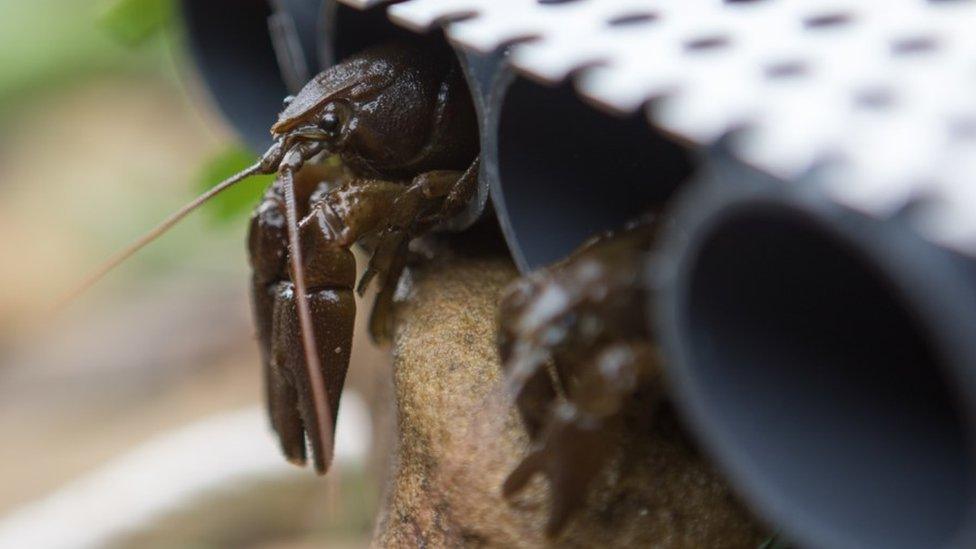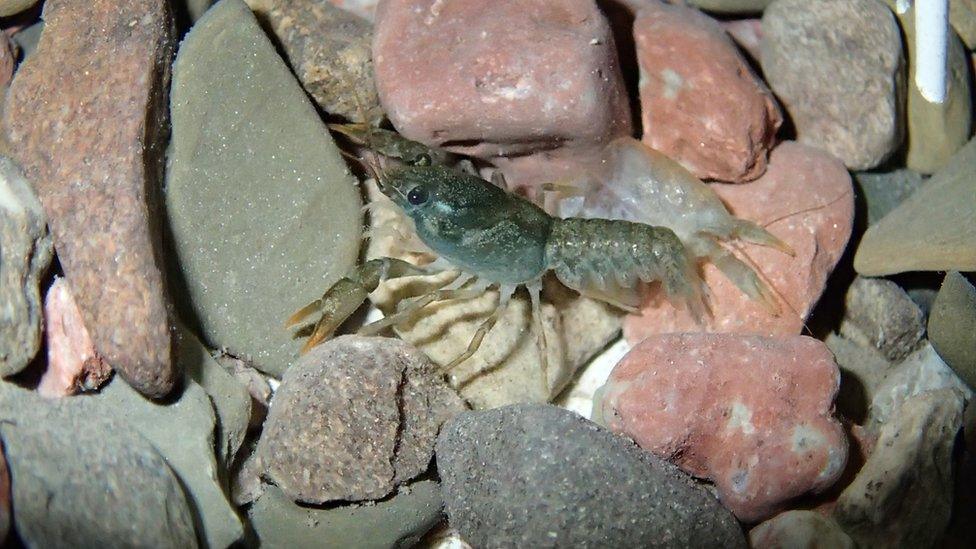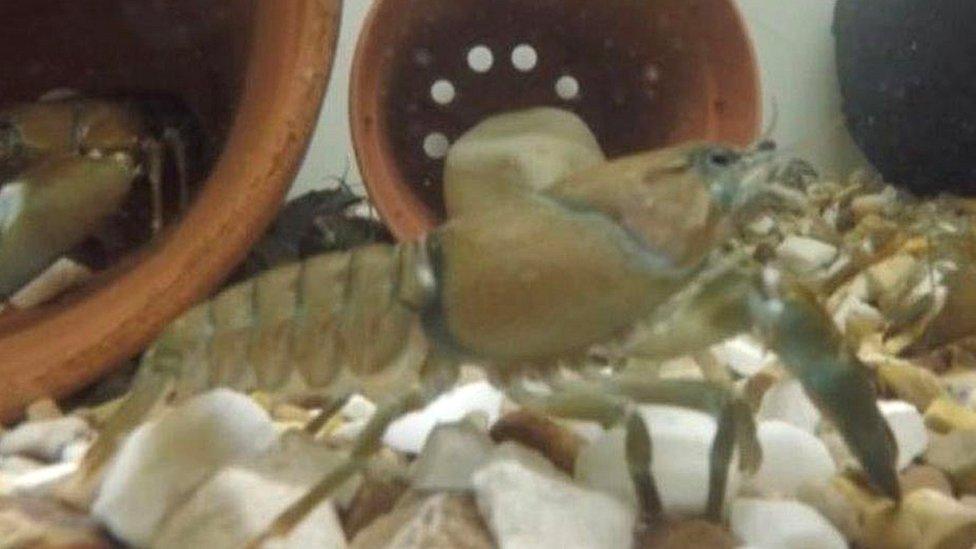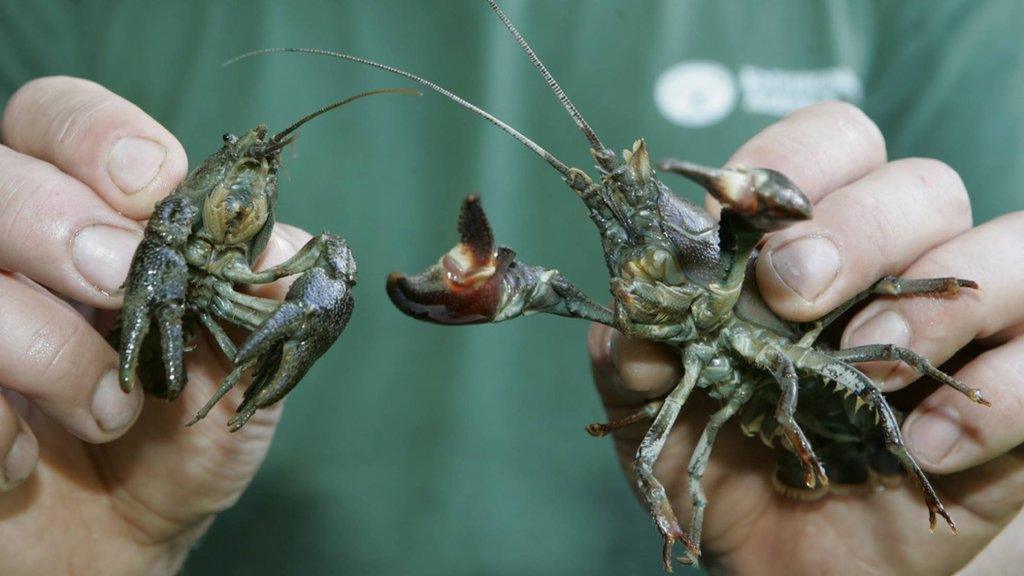Crayfish plague confirmed in River Leven after 40 crustaceans died
- Published

The disease is fatal among the rare, native white-clawed crayfish population that live and breed in waters in the north east of England.
A case of crayfish plague has been confirmed in the River Leven near Middlesbrough after 40 rare white-clawed crustaceans were found dead.
Samples were taken from the 700m stretch of watercourse in Crathorne, earlier in August.
It is thought to have come from American Signal crayfish and may have been transferred into the water by spores from another river or catchment.
The plague cannot be transmitted to humans or other animals.
Experts are now assessing whether the previously unrecorded native population has survived the outbreak.
Alice Fitch, from the Environment Agency, said: "If we find that this population remains, we intend to set up a programme to monitor it over the coming years."
People are being warned to avoid the river area for the remainder of August as spores can stay in the water and on damp footwear and equipment for up to 28 days.
Anything that has had contact with the water and riverbank needs to be cleaned thoroughly with warm water and detergent, before being dried for 48 hours to make sure all parasites are killed.
- Published13 March 2018

- Published1 September 2016

- Published16 October 2014
